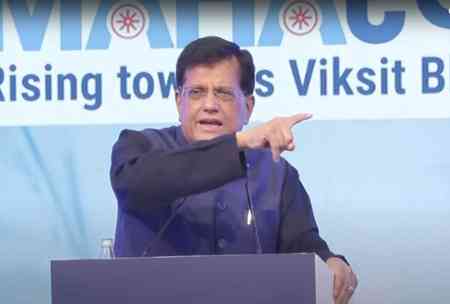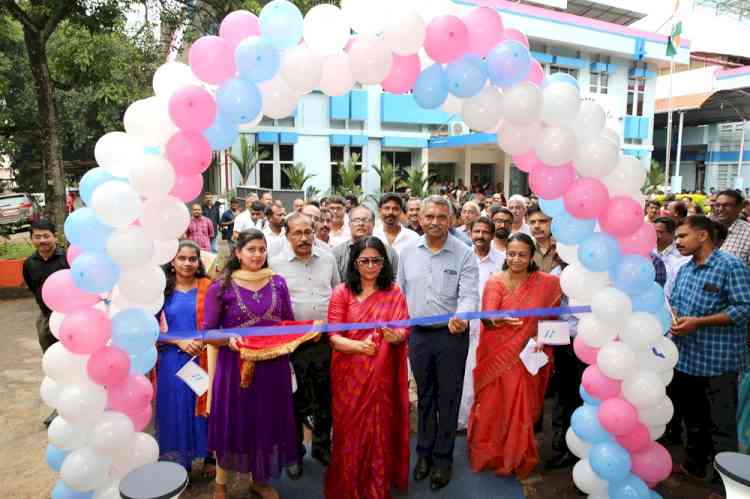Eco Survey says GDP growth to be 6.5% in 2023-24, slashes forecast to 7% in current fiscal
India is set to witness a baseline GDP growth of 6.5 per cent as per real terms in 2023-24, according to the economic survey for 2022-23, which was laid in Parliament by Finance minister Nirmala Sitharaman on Tuesday.

New Delhi, Jan 31 (IANS) India is set to witness a baseline GDP growth of 6.5 per cent as per real terms in 2023-24, according to the economic survey for 2022-23, which was laid in Parliament by Finance minister Nirmala Sitharaman on Tuesday.
The survey said that in real terms, the economy is expected to grow at 7 per cent in the current financial year (2022-23), a downward revision from 2021-22, when the growth was 8.7 per cent in the previous financial year (2021-22).
The fiscal deficit for 2022-23 is estimated to be 6.4 per cent of the GDP, the document said.
"Despite the three shocks of Covid-19, the Russian-Ukraine conflict and the central banks across economies led by Federal Reserve responding with synchronised policy rate hikes to curb inflation, leading to appreciation of dollar and widening of the current account deficits (CAD) in net importing economies, agencies worldwide continue to project India as the fastest-growing major economy at 6.5-7.0 per cent in 2022-23," the survey noted.
According to the economic survey, India's economic growth in 2022-23 has been mainly led by private consumption and capital formation and these have helped generate employment as seen in the declining urban unemployment rate and in the faster net registration in employee provident fund.
Moreover, the world's second-largest vaccination drive involving more than two billion doses also served to lift the consumer sentiment that may prolong the rebound in consumption. Still, private capex soon needs to take up the leadership role to put job creation on a fast track, the survey said further.
The optimistic growth forecasts have been mainly projected on the basis of several positive factors like rebound of private consumption which gave a boost to production activities, higher capital expenditure, near-universal vaccination coverage enabling people to spend on contact-based services, such as restaurants, hotels, shopping malls and cinemas, as well as the return of migrant workers to cities to work in construction sites leading to a significant decline in housing market inventory.
The survey, which highlights the economic performance of key sectors during the ongoing fiscal, further noted that strengthening of balance sheets of corporates, a well-capitalised public sector banks ready to increase the credit supply and the credit growth to the micro, small and medium enterprises (MSME), were some of the other aspects which have boosted optimism for a healthy growth projection in 2023-24.
Apart from housing, construction activity in general has significantly risen in 2022-23 as the much-enlarged capital budget (capex) of the Central government and its public sector enterprises is rapidly being deployed, the survey said, adding that if one goes by capex multiplier, the economic output of the country is set to increase by at least four times the amount of capex.
"States, in aggregate, are also performing well with their capex plans. Like the Central government, the states also have a larger capital budget supported by the Centre's grant-in-aid for capital works and an interest-free loan repayable over 50 years," it noted.


 IANS
IANS 








